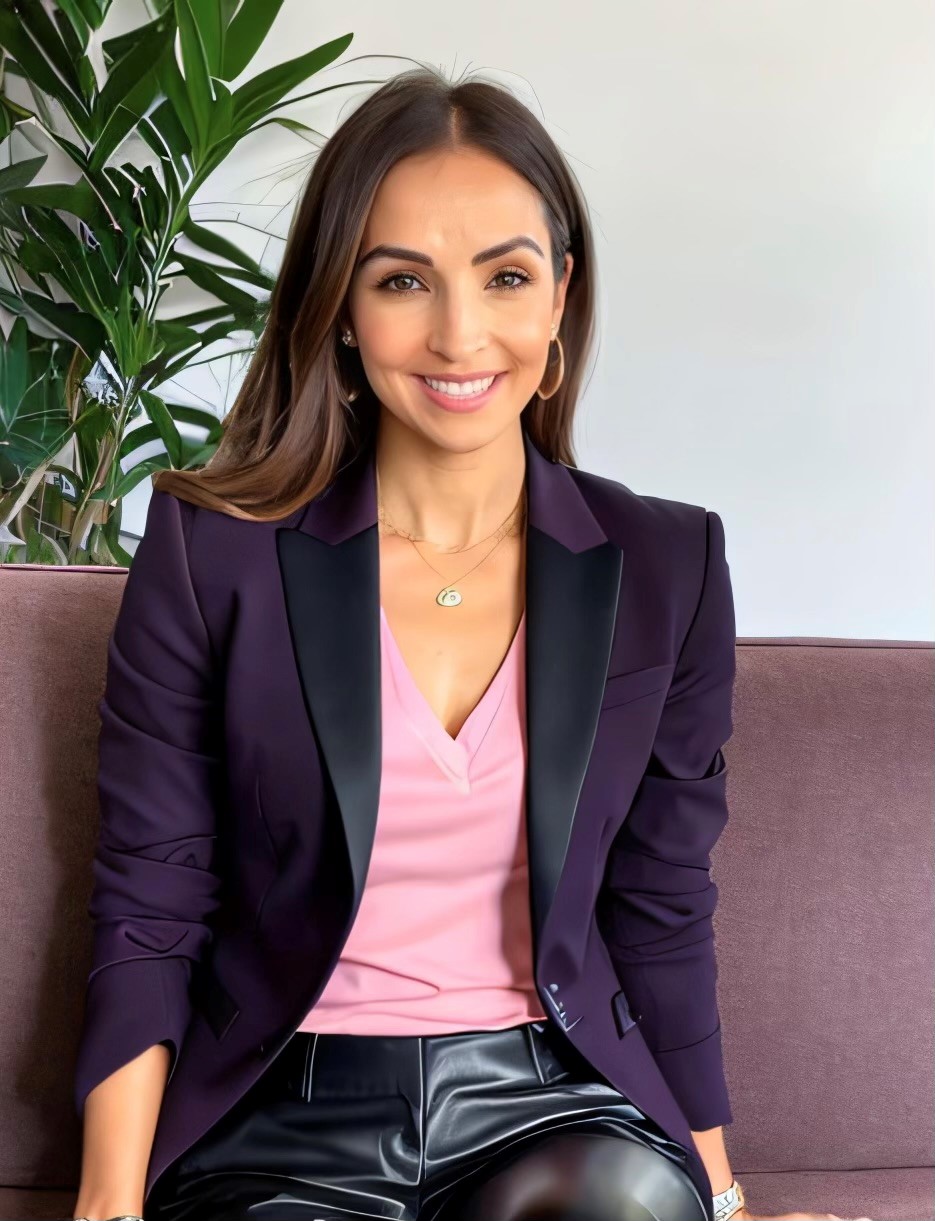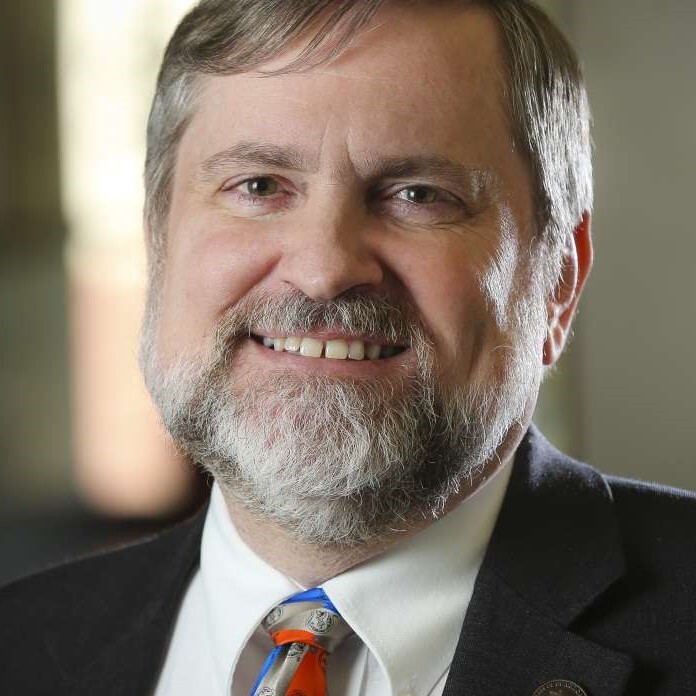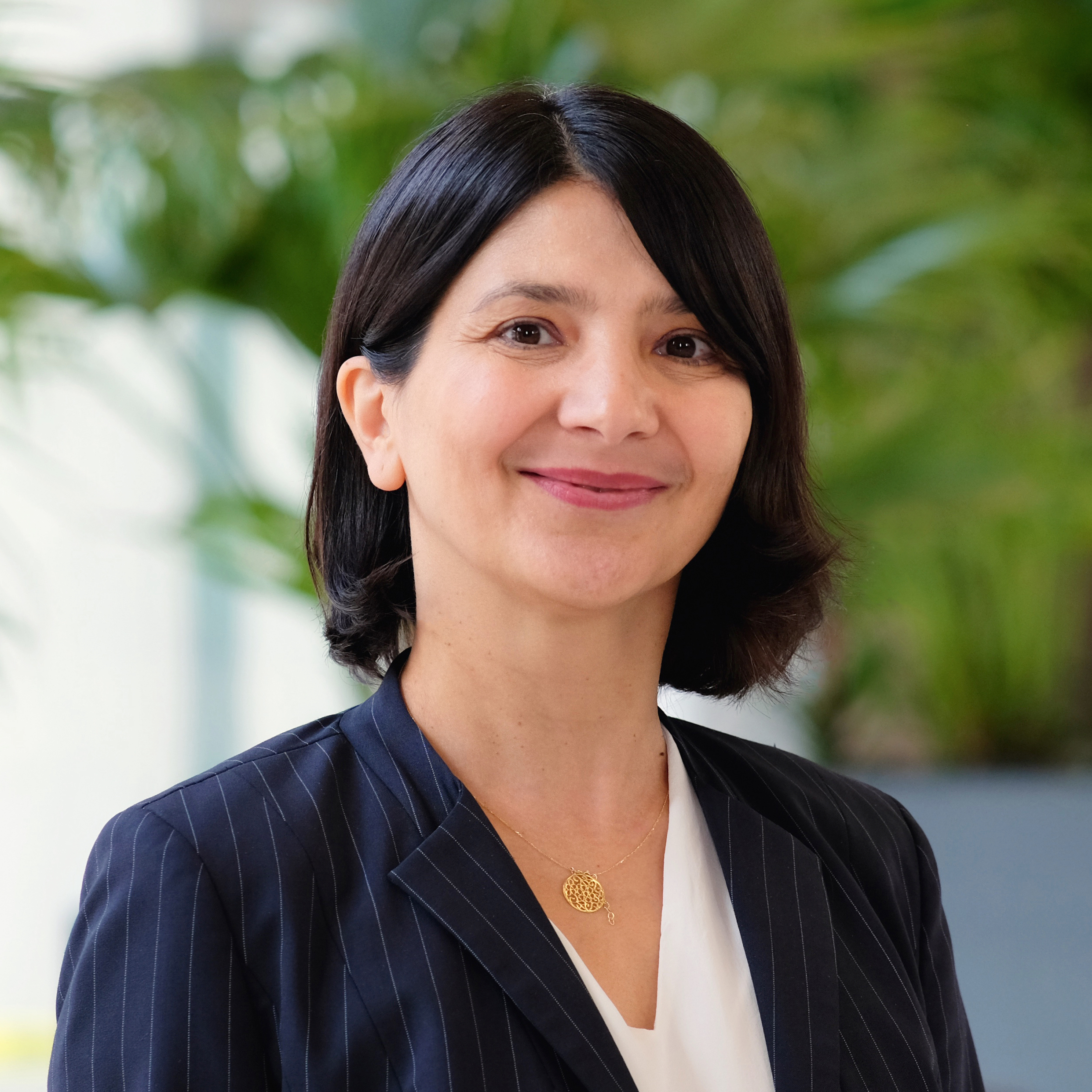INSciTS Board of Directors
|

Radwa Aly
President
|
As a seasoned professional with over 18 years of experience in clinical research administration and operations, Dr. Aly currently serves in an executive leadership role at the George Washington University School of Medicine and Health Sciences. She is responsible for the strategic growth of high-impact translational clinical research and clinical trials across the academic medical enterprise. Dr. Aly earned her BS in health sciences from George Mason University. She went on to earn a Master of Science in Clinical and Translational Research and completed her PhD in Translational Health Sciences at the George Washington University School of Medicine and Health Sciences. She also completed a Principal Investigator fellowship at Mass General Hospital in 2018. Dr. Aly is a certified Principal Investigator through ACRP.
Dr. Aly is dedicated to reducing healthcare inequities. She also works to improve equity and diversity in research recruitment, enrollment, and retention in clinical trials. Her research focuses on disparities in health care among patients with functional neurologic disorders. Dr. Aly’s work addresses the challenging question of identifying mutable factors that lead patients to seek care in the ED for seizure management. She combines this with a qualitative understanding of patients' experiences of seizure management. The goal is to propose approaches for improved transitions of care for these patients. Her research has already been read by numerous scholars in Europe, Malaysia, and the US. Dr. Aly is the author of two book chapters and several peer-reviewed publications and abstracts. This demonstrates her sustained productivity as a research scholar. Her training prepared her to work in fields that translate knowledge across pre-clinical, clinical implementation, and public health phases of the translational spectrum.
As co-founder and now Director of the SMHS Office of Clinical Research, Dr. Aly has led a 33% increase in the volume of clinical trials conducted with the office’s support since 2021. In this role, she serves as a key advisor to SMHS leadership, helping to grow the institution’s capacity for conducting high-quality clinical research. Most recently, Dr. Aly worked as a lead clinical research scientist with the new Functional Neurological Disorders clinic. She focused on building up clinical research opportunities in this important area.
Dr. Aly’s background in translational science directly translates to Team Science. She draws on a wealth of expertise and experience from an academic medical enterprise. |
| |
|

Wayne T. McCormack
Immediate Past President
|
Dr. Wayne T. McCormack is a Distinguished Teaching Scholar and Professor at the University of Florida College of Medicine, where he directs training programs related to clinical & translational science and biomedical research career development. As part of the TL1 training grant component of the UF Clinical & Translational Science Award that he leads, he has developed a novel team-based research training program for PhD and dual degree students. His research interests all focus on education-related projects, including competency-based assessment of science PhD training, team science training, team-based learning, responsible conduct of research training, and career outcomes. Dr. McCormack is a founding member of the Science of Team Science community, the founding chair of the INSciTS Team Science Education and Training special interest group, past-president of the Team-Based Learning Collaborative, and past-chair of the Graduate Research Education and Training Group of the Association of American Medical Colleges. He looks forward to working with the board to provide guidance related to team science education and training.
|
| |
|

Rebecca Woodland
Vice President
|
Dr. Rebecca H. Woodland is Professor of Educational Policy, Leadership and Administration at the University of Massachusetts Amherst. Dr. Woodland investigates, distills, and interrogates the theory and practice of inter-organizational and team-based collaboration. She has developed and published metrics, tools, and approaches for the assessment and measurement of collaboration, and studies the quality and effects of collaboration in a wide range of contexts including P12 schooling, and the health, human, and social service sectors. Her team collaboration assessment rubric (Woodland, 2016) and collaboration evaluation improvement framework (Woodland & Hutton, 2012) are used widely in the measurement and formative assessment of team-based collaboration. As Director of Program Evaluation at the UMass Center for Educational Assessment, Dr. Woodland leads several large-scale evaluation projects, including EmbraceRace, a nonprofit organization that develops and advances the networked field of children’s racial learning, and Computer Science for ALL, an NSF sponsored Research-Practice Partnership that advances culturally responsive, equity-focused computer science and digital literacy in a large urban district through teacher teaming. Dr. Woodland has chaired the American Evaluation Association’s Organizational Learning and Evaluation Capacity Building TIG, Social Network Analysis TIG, and P12 Educational Assessment TIG. She serves on the editorial boards of the American Journal of Evaluation and Evaluation and Program Planning, and the SAGE Encyclopedia of Research Design. She is the recipient of the American Evaluation Association’s Marcia Guttentag Award for outstanding evaluation.
|
| |
|

W. Christopher (Chris) Lenhardt
Secretary
|
W. Christopher (Chris) Lenhardt, M.A., M.Sc., is a senior research scientist in the Earth Data Science group at the Renaissance Computing Institute (RENCI). RENCI, a data science institute at the University of North Carolina at Chapel Hill, works to develop and apply advanced data science to solve challenging research and societal problems. At RENCI, he leads or coordinates several projects composed of diverse teams of researchers in areas related to human interactions in the environment. His academic training spans multiple disciplines including political science, international relations, digital curation, and information science. Lenhardt draws on these experiences to inform his research interests that include using sociotechnical concepts to study the development of research information infrastructure. Of particular focus is the interaction between information technology, knowledge management, and team performance. Lenhardt’s interest in these topics also leverages his experience managing NASA-funded earth science data centers, such as serving as director of the Distributed Active Archive Center (DAAC) for Biogeochemical Dynamics at Oak Ridge National Laboratory (ORNL) and deputy director of the Socioeconomic Data and Applications Center (SEDAC) at Columbia University. Lenhardt has been an author or co-author on published papers including digital curation; ethical, legal, and societal implications of technology; open science; stakeholder alignment; and information science. Lenhardt has held leadership roles in national and international organizations related to promoting the curation, sharing, and re-use of digital scientific objects including serving as president of ESIP (Federation for Earth Science Information Partners), chair of the Foundation for Earth Science board of directors, and co-chair of the CoopEUS strategic collaboration board. CoopEUS was an EU and NSF joint project to promote aligning scientific cyberinfrastructure. He currently serves as a member of the National Oceanic and Atmospheric Administration’s (NOAA) Science Advisory Board. He looks forward to working with the Board to help grow and sustain INSciTS, for example representing INSciTS in the Earth and environmental science communities of which he is a part, and working to promote diversity, equity, and inclusion throughout the research enterprise.
|
| |
|

Deborah Diaz Granados
Treasurer
|
Deborah Diaz Granados, PhD is an Associate Professor and Organizational Psychologist at Virginia Commonwealth University School of Medicine. She serves as Director of Evaluation and Co-Director of Team Science for the Wright Center. She is a Co-Investigator on the $20 million Clinical and Translational Science Award awarded to VCU by NIH. Her research focuses on decision making in uncertain contexts, collaboration for producing innovation, and leadership in complex work environments. Dr. Diaz Granados' scholarly achievements to date include over 50 scholarly publications, and more than 150 presentations to national and international audiences. She serves as the Consortia Chair for the Society for Industrial and Organizational Psychology and Program Chair for the 2020 IN. Dr. Diaz Granados' research has been published in peer-reviewed journals such as Journal of Applied Psychology, Human Factors, Academic Medicine, Journal of Interprofessional Collaboration, Small Group Research, Human Resource Management, Journal of Management, Current Directions in Psychological Science, American Psychologist, Clinical and Translational Science and The Joint Commission Journal on Quality and Patient Safety. Dr. Diaz Granados received her B.S. degrees in Management and Psychology from the University of Houston and her M.S. and Ph.D degrees in Industrial/Organizational Psychology from the University of Central Florida in Orlando, Florida. |
| |
|

Margaret Browne Huntt
|
Margaret Browne Huntt, PhD, MBA is the Assistant Dean for Inclusive Excellence within the College of Liberal Arts and Sciences at the University of Illinois at Urbana-Champaign. Before this appointment, she was the Assistant Director for Strategic Research Initiatives and Chief Diversity Officer at the Cancer Center at Illinois. Her proven administrative and facilitative skills have enabled the integration of vision, decision-making, and resource allocation.
Dr. Browne Huntt builds collaborative research teams and networks by supporting inclusive strategic research activities, partnerships, and special projects. She aids in assessing and developing numerous research and strategic thematic areas. She also works with organizational stakeholders to determine infrastructure needs and implement processes to promote the success of those collaborations. She leads the administration of the inclusive strategic planning process, the development and execution of new programs, and external engagement opportunities.
Dr. Browne Huntt interacts with teams and communities of practice to develop and disseminate frameworks to enhance individual and team competencies from the ideation to evaluation phases. She helps to facilitate the activities of interdisciplinary research teams that incorporate the tenets of organizational sciences.
|
| |
|
|

Curtis Friedel
|
Curtis Friedel, Ph.D., is an Associate Professor, and Co-Founder and Director of the Center for Cooperative Problem Solving (CCPS), at Virginia Tech. He maintains a teaching and research appointment with focus placed on adaption-innovation theory; a problem-solving theory with applications in leadership development, cognitive diversity, team dynamics, and leading organizational change. Serving as Director of CCPS, Dr. Friedel works to continue the teaching and research of adaption-innovation theory, which was originated by the late Dr. Michael Kirton. As a co-instructor of the KAI (Kirton’s Adaption-Innovation Inventory) accreditation course, Dr. Friedel works with the KAI teaching team to accredit individuals seeking to use the KAI to advance their work. He was also
instrumental in developing and managing the annual KAI Symposium, which has opened a space for practice to inform research of using KAI and adaption-innovation theory. Dr. Friedel has been published in the Journal of Leadership Education, the International Journal of Innovation Management, Thinking Skills and Creativity, and has served as guest editor of the Symposium issue for the Journal of Leadership Studies. |
| |
|

Damayanthi "Dayan" Ranwala
|
Damayanthi (Dayan) Ranwala, PhD, is Director of Research Development in the Department of Bioengineering, Clemson University, South Carolina. Prior to joining Clemson in 2023, she was an Associate Professor in the Medical University of South Carolina, and Associate Director for Team Science Program and Pilot Project Program for the South Carolina Clinical and Translational Research Institute. She has been involved in many aspects of the team science initiatives at the local and national levels primarily in developing Team Science education and training initiatives for the translational science teams. She has served the INSciTS in different capacities over the last several years.
Dr. Ranwala has been a member of the Team Science Affinity Group that led to develop and disseminate a framework of individual and team competencies. Building upon that work, she is currently serving as a co-leader for the INSciTS Education and Training SIG’s Working Group “Mapping Team Science Competencies for Translational Science Teams Across the Lifespan” to develop team science competencies for three specific groups (Trainees and Faculty; Clinical Research Professionals; and Community Partners) and Co-Chair for the Workgroup’s Faculty and Trainees Group to identify relevant importance of the competencies and the level of mastery needed for individuals at each stage of their career progression. Findings of this work will help to develop education and training curricular for the three groups as well as assessment of team science competencies of the individuals. In addition, she served as the Co-Chair for the national CTSA Institutional Readiness for Team Science Workgroup, Academic Promotion and Tenure Workgroup, Lead for the Great CTSA Team Science Contest, and Chair for the Contest Judges/Judging Criteria Committee and helped to disseminate the findings. Dr. Ranwala has served as a faculty advisor, mentor, and scholar promulgating the concepts of Team Science. Further, she has served as planning committee member and an evaluation team member for the SciTS Conference committees.
Dr. Ranwala looks forward to working with the INSciTS Board to further advance the team science education and training to a broader community representing other disciplines such as bioengineering. Understanding of team science competencies and their relevance to specific group and discipline may improve team cohesion and functioning leading to more effective teams and outcomes.
|
| |
|

Tayana Soukup
|
Dr. Soukup is a chartered psychologist accredited by the British Psychological Society and specialized in team science. She is also a fellow of the Royal Society for Public Health in the UK and a fellow in human factors**, focusing** on artificial intelligence. Holding two accredited psychology degrees and an NIHR-funded PhD in Psychology Applied to Medicine, she is based at Imperial College London and collaborates internationally.
Dr. Soukup's work focuses on studying multidisciplinary teams, including the development of novel methods for evaluating and improving teamwork (in real-time and using video-based team analytic methods), psychometric tool development, and the development and delivery of training and teaching to clinical teams internationally in team science. Together with her colleagues, Dr. Soukup has scientifically studied the workings of cancer teams over the past 10 years, and has built an extensive evidence base (>50 outputs) – with evidence on the factors that promote and those that hinder teamwork. For example, Dr. Soukup’s paper on communication in cancer teams received an award at the Science of Team Science conference (2018) for excellence in research approach, clarity, innovation, and significance for advancing important topics in team science. Dr. Soukup has also designed and is currently piloting the largest national team programme in cancer care in the UK, with 73 teams participating.
One of the main goals of Dr. Soukup’s work is to contribute to research on how clinical teams communicate and make decisions by translating evidence into practice and providing means to prevent and mitigate unintended detrimental consequences of human factors (e.g., cognitive biases, fatigue, errors). Her scientific approach combines a unique mix necessary for the study of teams. She appreciates that a combination of different approaches is needed to drive understanding and improvement, identify inefficiencies and preventable errors, design appropriate methods and assessment tools, develop effective innovations, and implement and promote their uptake.
|
|
|
|
|

Alina Lungeanu
|
Alina Lungeanu, Ph.D., is an Assistant Professor of Communication Studies in the College of Arts, Media and Design at Northeastern University, with a joint appointment in the Management and Organizational Development Group at the D'Amore-McKim School of Business. She is also a Core Member of Northeastern’s Network Science Institute (NetSI).
Dr. Lungeanu’s research sits at the intersection of social science and network science. She studies how individual and team characteristics shape, and are shaped by, the networks in which they are embedded. Her research advances our understanding of team formation, collaboration, and performance in two main areas. The first area explores cross-boundary scientific collaboration, uncovering the social dynamics that spark innovation in research teams that span disciplinary and institutional boundaries. The second area, conducted in partnership with NASA, maps the social and cognitive networks that help small teams maintain cohesion and effectiveness on extended missions. In sum, her research reveals the factors that turn collections of individuals into high-performing teams—whether they are tackling grand scientific challenges at home or sustaining one another millions of miles away.
Her research is supported by grants from the National Science Foundation, the National Institutes of Health, and NASA, and appears in top journals including Network Science, The Leadership Quarterly, American Behavioral Scientist, Human Factors, and Communication Methods and Measures.
|
| |
|
|

Brandy Farlow
|
Brandy’s leadership would be a significant asset to INSciTS, building on her deep commitment to advancing team science and her active engagement in the organization. As a member, she has contributed meaningfully through her work on the conference program planning committee and the membership committee. She also volunteered, helping shape the organization’s new senior fellows program development. Brandy’s professional role as a technical writer and research proposal specialist, combined with her background as a math and science educator, gives her a unique ability to bridge disciplines and communicate effectively across scientific teams. Her leadership of a team science webinar series (open to the public) and a team science working group at the Renaissance Computing Institute (RENCI) reflect her initiative in creating accessible, high-impact programming, providing opportunities for professionals to improve their collaborative practices. Currently pursuing a PhD in Leadership, with a dissertation focused on leadership and virtual collaboration structure evaluation in collaborative science, Brandy will bring both scholarly insight and practical expertise to INSciTS. Her passion for collaboration, strong communication skills, and strategic mindset equip her to grow INSciTS’s membership, expand programming, and engage diverse stakeholders. Brandy’s experience and inclusive approach make her well-positioned to help grow and direct INSciTS, engage new stakeholders, and expand programming that reflects the evolving needs of the field and organization. Through her leadership, INSciTS would benefit from a thoughtful, action-oriented advocate for collaboration and inclusion in science. |
| |
|
|

James Hemsath
|
Dr. Hemsath's foundational research for his doctorate was focused on multiparty transnational collaboration. He extended that work to examine the relationships among trust, trust resiliency and collective ambition to multiparty collaboration, specifically looking at Participatory Action Research and Participatory Modelling as a more effective approach to working with indigenous communities in Alaska and the Arctic. Dr. Hemsath recently co-authored the paper “Indigenous Perspectives on Green Finance and Digital Infrastructure: A Systems Dynamics Approach to Sustainable Arctic Development,” which will be presented this summer at the International System Dynamics Conference in Boston. He also works with Northeastern University on Participatory Modelling. Dr. Hemsath is an Adjunct Professor of Management with the University of Alaska Anchorage (UAA) College of Business and Public Policy, where he teaches undergraduate and graduate classes in Management and Organizational Behavior. He is also a member of the UAA College of Engineering Dean's Advisory Board, a member of the Alaska State Committee on Research and a member of the Executive Board of the Management Division of the American Society of Mechanical Engineers. |
| |
|
Former Board Members and Officers
- Maritza Salazar Campo, PhD, University of California, Irvine, Founding President and Board member (2018-2019), Immediate Past President (2019-2020)
- Holly J. Falk-Krzesinski, PhD, Elsevier and Northwestern University, Secretary and Board member (2018-2019)
- Kevin Wooten, PhD, University of Texas Medical Branch, Treasurer (2018-2019) and Board Member (2018-2020)
- Kara Hall, PhD, National Cancer Institute, Board Member (2018-2019)
- Julie Thompson Klein, Wayne State University, Board Member (2018-2020)
- Gaetano Lottrechiano, George Washington University, Board Member (2018-2021), President (2019-2020)
- Andi Hess, Arizona State University, Board Member (2018-2021), President (2020-2021)
- Shalini Misra, Virginia Tech, Board Member (2018-2021)
- E. LaVerne Manos, DNP, University of Kansas Center for Health Informatics. Board Member (2019-2022), Treasurer (2019-2021)
- Darshana Shaw, Marshall University Board Member (2019-2022)
- Stephen M. Fiore, PhD, University of Central Florida, Founding Board Member, (2018-2023), President (2021-2022), Immediate Past President (2022-2023).
- Zaida Chinchilla Rodriguez, Board Member (2018-2023)
- Tony Lingham, Board Member (2020-2023)
- Katie Plaisance, Board Member (2021-2023)
- Betsy Roland, Board Member (2021-2023)
- Yi Bu, Board Member (2022-2023)
- Pips Veazey, Board Member (2018-2021) Secretary (2021-2024)
- Heather Billings, Mayo Clinic, Board Member (2022-2025), President (2022-2023), Immediate Past President (2023-2025)
|
|













